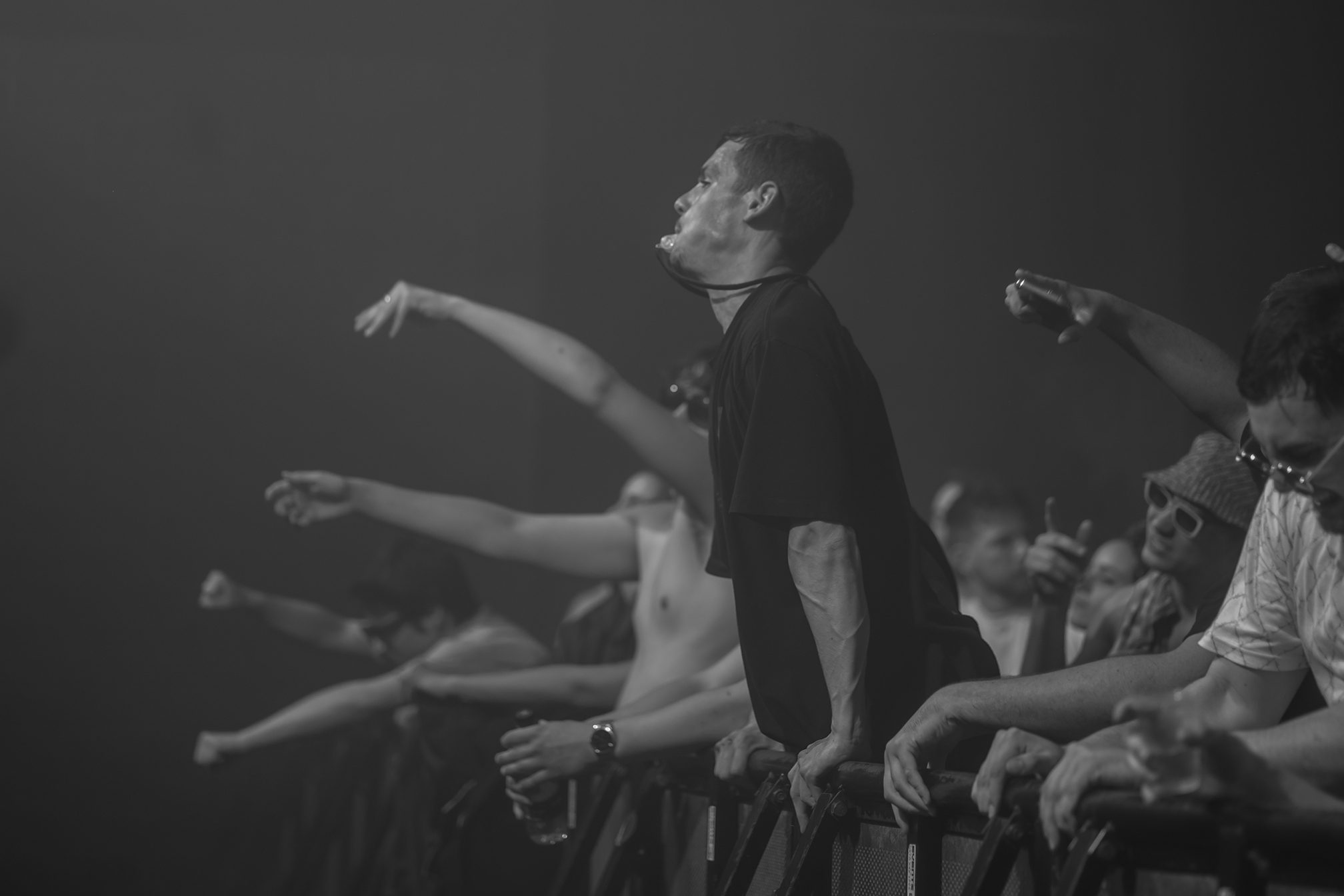 Features
Features
A techno obsession: Inside the hard, fast rise of Teletech
Building from an XXL launchpad after lockdown, Teletech has grown a devoted fanbase with sold-out events all over the world. Niamh Ingram reports on its journey from student house parties in Manchester to globe-conquering brand
It’s 2017. Deep in the heart of Fallowfield, Manchester, something is bubbling. Unbeknown to the bustling dancers cramming into student houses at the time, these fresh-faced DJs would be the same ones filling 10,000-strong dancefloors and beyond some years later.
As I open Instagram one morning in late 2023, a black-screened alert welcomes me. “PUBLIC SERVICE ANNOUNCEMENT — SIGN UP OR FACE BEING TICKETLESS” is scrawled across the caption promoting Teletech’s upcoming summer festival. While sell-out warnings are a familiar marketing ploy to many a punter, Teletech’s are all too real – and by the end of the day they’re down to final release.
“It’s like a dream come true, really,” grins Tom Shenton, one half of the duo behind the party alongside Anton Stevens. He makes the comment at the end of our interview, though it feels an appropriate place to start, as it’s clear that the founders of Teletech (and its XXL counterpart) are not only “grafters”, as described by regular DJ Sara Landry, but have dance music coursing through their veins.
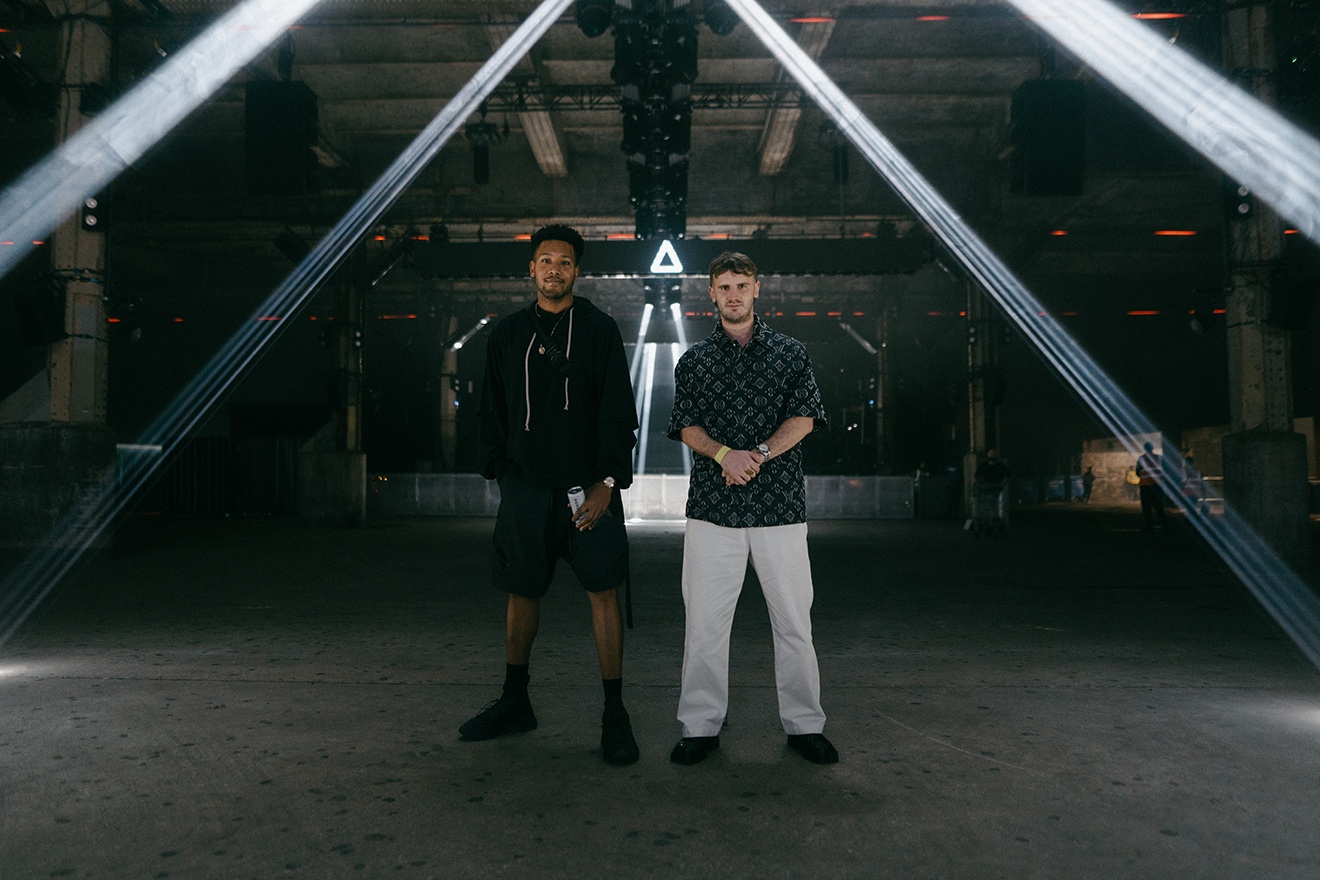
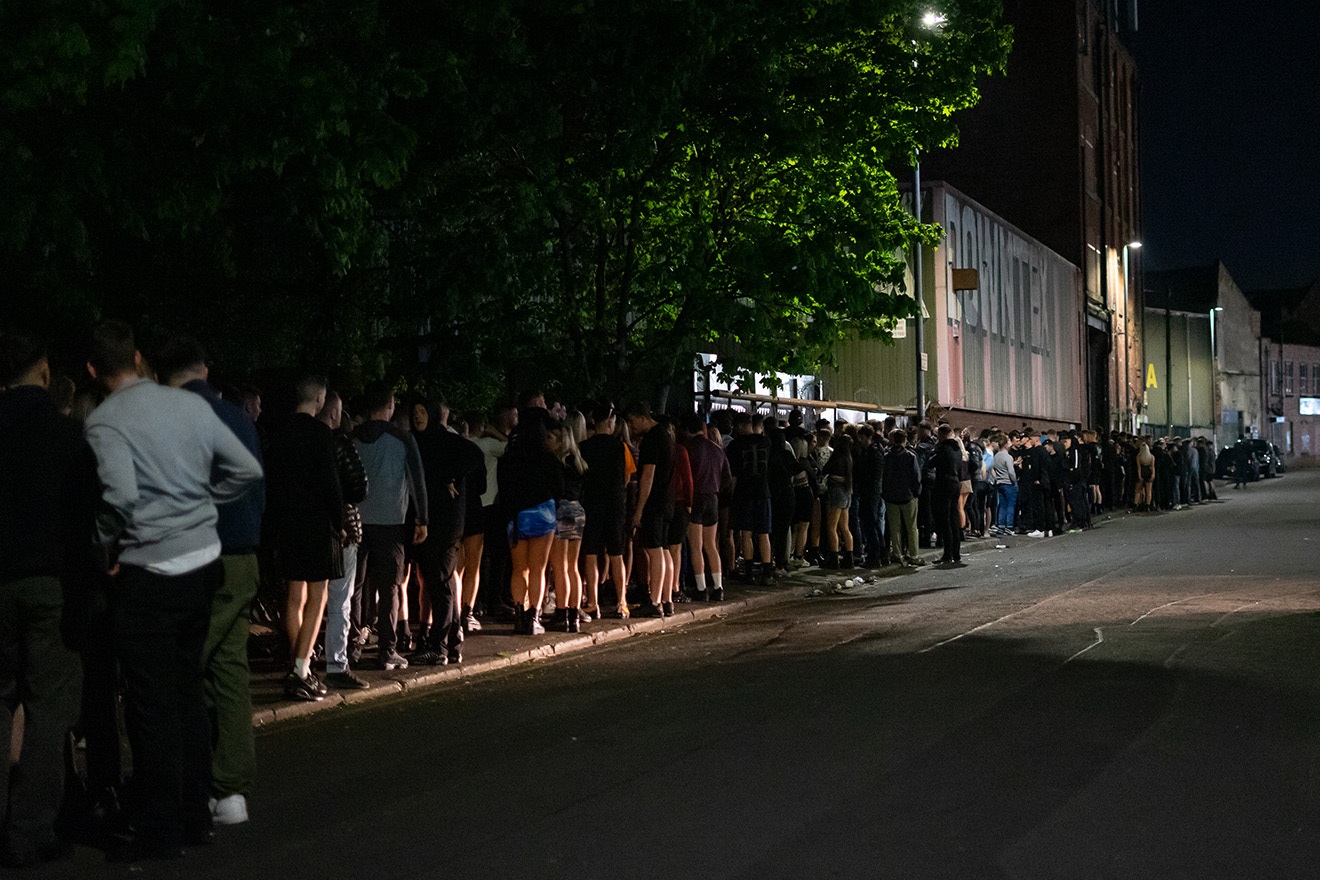
Tom’s childhood was surrounded by cousins who embraced happy hardcore, taking him to Scooter concerts at the Manchester arena, with his teenage years spent in Warehouse Project and Sankeys. Anton Stevens was a product of his environment, spending much of his time in his father’s nightclub in the city and even hosting his 13th birthday party there. After also attending Sankeys and Warehouse Project, and beginning to do artist liaison work for the latter clubbing institution, things snowballed, and upon finishing university in Leeds, Anton began to work in its office. Having fully caught the nightlife bug, he started hosting his own parties and stumbled across the now-iconic Hidden in the process, which at the time was unlicensed. Fast forward to today, both Anton and Tom help steer the ship at the club.
Meanwhile, over in Fallowfield circa 2017, Tom had stumbled across harder soundscapes, and soon established Teletech as an outlet of expression for the keen-eared students of Manchester — initially at house parties, then at small venues.
“We were just doing it as student nights firstly, me and my mates DJing,” Tom explains. “Then I wanted to start doing my first booking so enquired at Hidden, where Anton worked doing the bookings. We did our first event here and then I was constantly asking Anton for more dates. Anton then rang me and asked if I wanted to work at Hidden with him – so then I was just here as a little assistant.”
“Essentially, the main starting point was XXL, wasn’t it?” Anton says to Tom, nostalgia clear on the pair’s faces. “Tom had started working with us in the office. During the pandemic it was difficult for everyone in our industry and we were just going through ideas and plans for the future, and we really wanted to come out swinging after everything was due to reopen. We started with this idea of really going for the top end of what would be possible coming out of the pandemic without knowing if it would work or not.”
Upon the welcomed return of clubbing in 2021, the XXL tour was launched, where the duo booked Amelie Lens as headliner across three UK cities. All tickets sold out, with Manchester, Bristol and Birmingham receiving the XXL brand and its bookings - which also included Blasha & Allatt, Rudosa and Airod - superbly. That tour’s revenue was injected into Teletech, which the two were also now working collaboratively on, marking a real breakthrough moment for the XXL and Teletech sister brands.
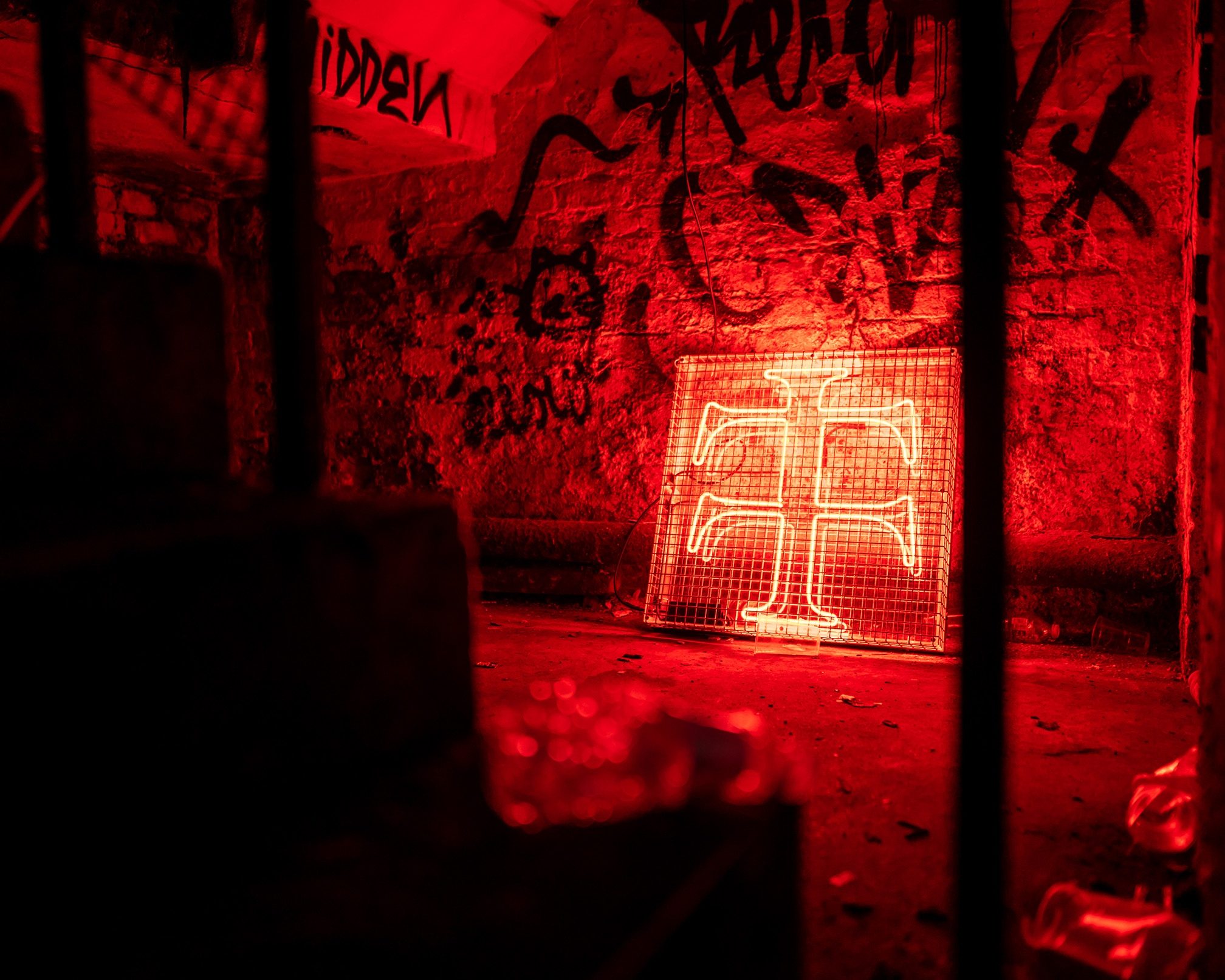
Today, Teletech has an esteemed roster of artists that have grown alongside it, with residents Charlie Sparks, TDJ, and regular faces at its globally-spanning parties including Azyr, Sara Landry, blk., Lucia Lu, Faster Horses, Nico Moreno, Kander and SPFDJ. The regularity of certain names indicates that Teletech nourishes its relationships with artists - even more so through their booking and management arm, JINN Agency - and there is a keenness to embrace those outside of the dominant scenes of London and Berlin. A hoard of artists hail from Manchester, with others such as Azyr from Blackpool and blk. from Ireland.
“Although the party’s grown from what it was, we still run it how people run it like a small party,” says Anton. “We’re very hands on. There’s not a single job from the promotional aspect or event running aspect that me and Tom haven’t done ourselves at one point or another.”
“We pride ourselves on being really good friends with everyone that we book because we always go to artist meals, we’re always at events, we’re always watching everyone play,” adds Tom. Regular blk., who grew in parallel with Teletech, describes the crew as “like family”. “That’s crucial,” Tom continues. “A lot of bigger events are quite faceless in the sense that you might not know who’s running it or it might be boring people running it who sit in the back and do nothing, whereas we get heavily involved in it and the artists like that, rather than it being some corporate thing.”
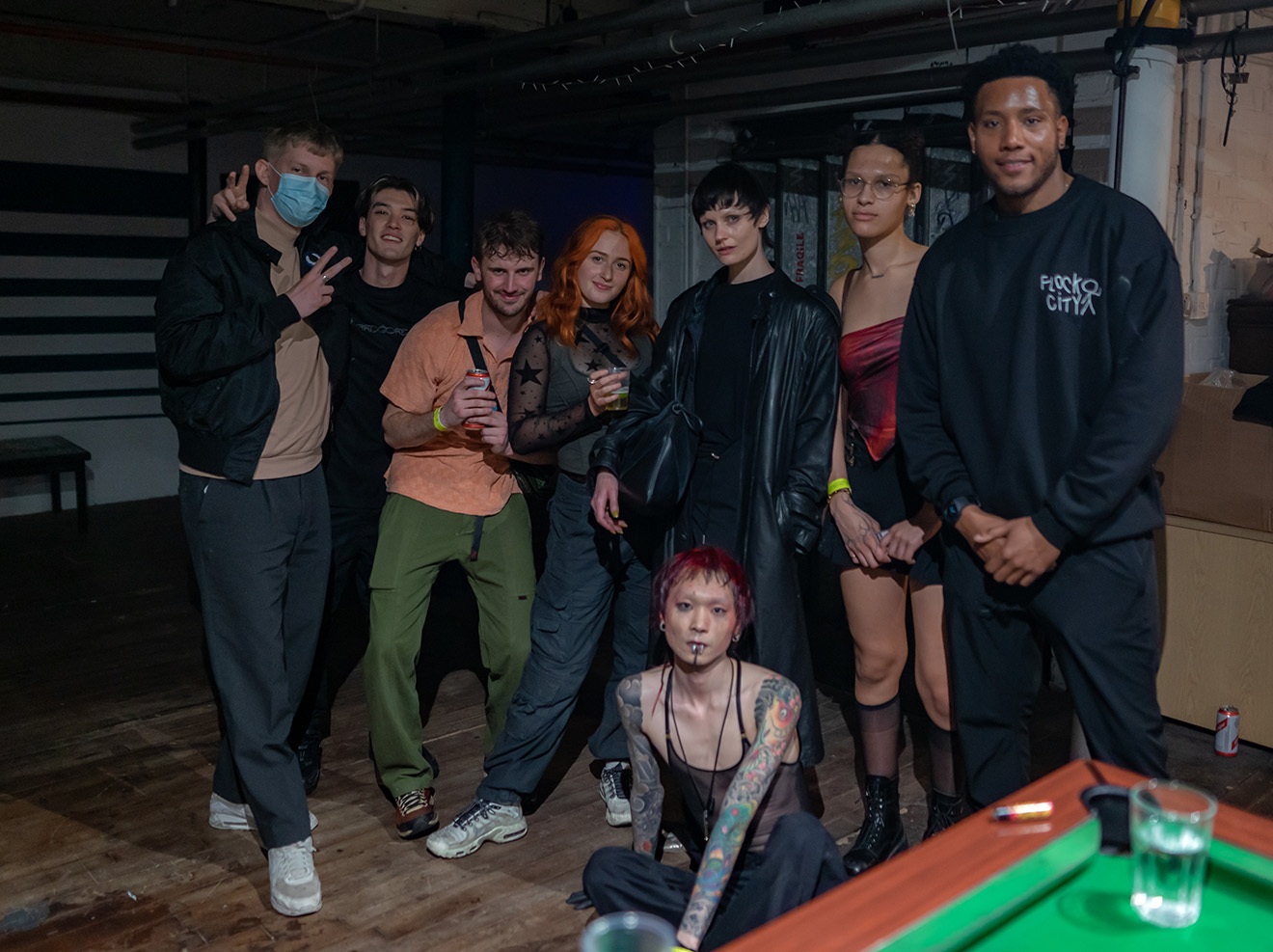
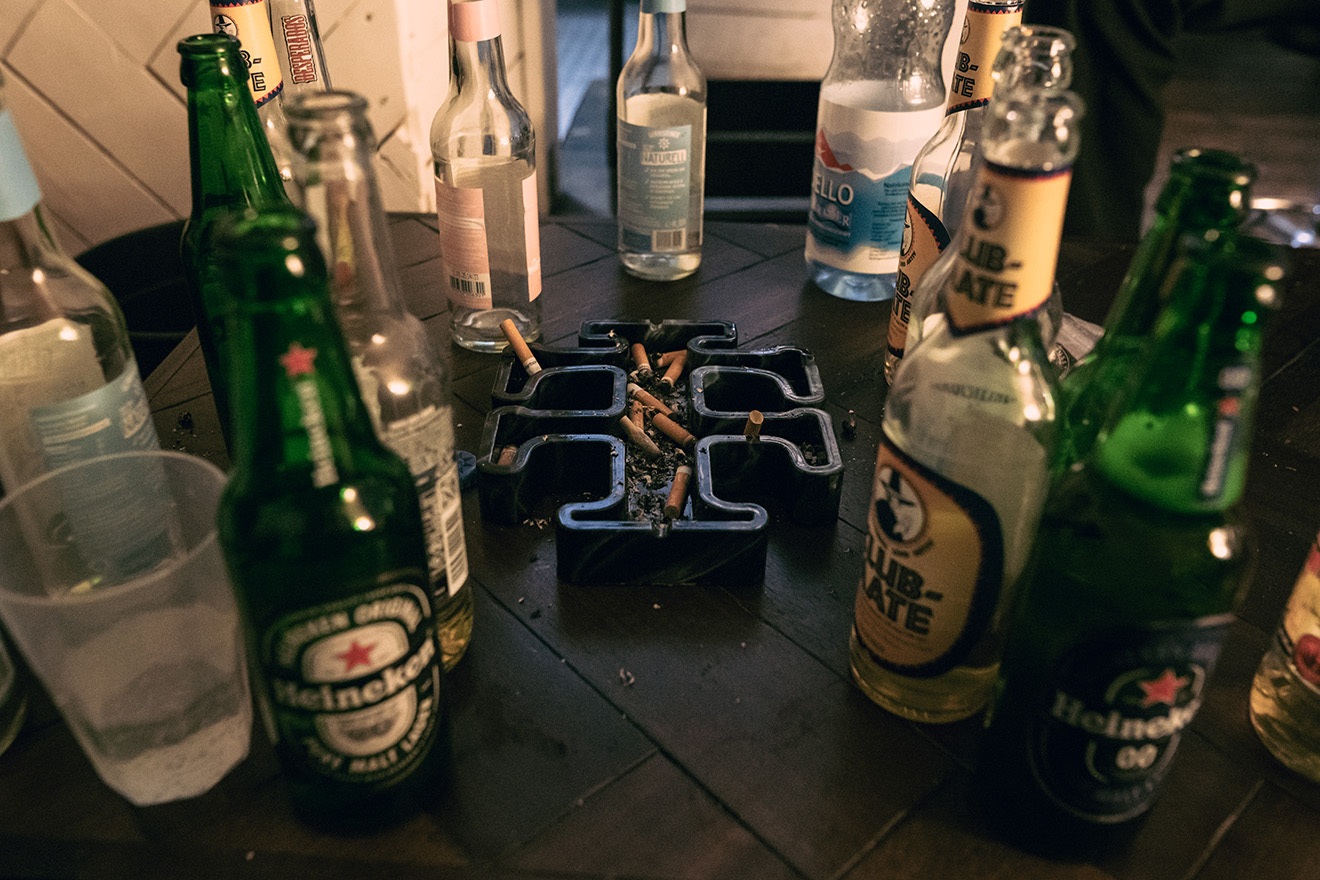
“Anton and Tom are homies and always take such good care of me and my peers at shows. We have a blast together!” Sara Landry keenly tells me when I ask her about her affinity with the party. “They are involved in the ‘blow up’ in that our wins are shared wins and we are all growing together. The Boiler Room is a great example of this; I have them to thank for my debut. To have this huge moment that will live forever - which has gone viral and become Teletech’s highest-viewed stream so far - be something that we all did together in collaboration makes for a very special memory. There’s no better feeling than growing and winning together with your friends, and that’s how I feel when I play Teletech events.”
Read this next: How Liverpool's legendary Club 051 was brought back from the brink of demolition
“Teletech for me is a home from home,” regular Azyr adds when asked why he has so keenly stuck by the party. A Blackpool lad, his All Night Long set this month at BEC Warehouse sold out in just 10 minutes, and he accredits much of his success to Teletech. Attending his first as a punter in 2020, he caught Tom and Anton’s attention in 2022 when Kander brought him onstage while playing his unreleased track. Summertime of 2022 saw Azyr play his first set for the party. “I’ve made so many friendships from playing and attending their events and there's no better feeling as a DJ to know you’re going to be in good company as soon as you arrive at the gig.
“Ever since I started my journey with them, we have grown together and no matter how big my own profile becomes, I know I wouldn’t be where I am today without them. I also believe that no other event has supported me and guided me as much as they have. Teletech put a huge amount of trust in me right from the start and at the time I didn’t deserve the chance, but they saw my potential and since then we’ve created some unforgettable memories together that will last forever.”
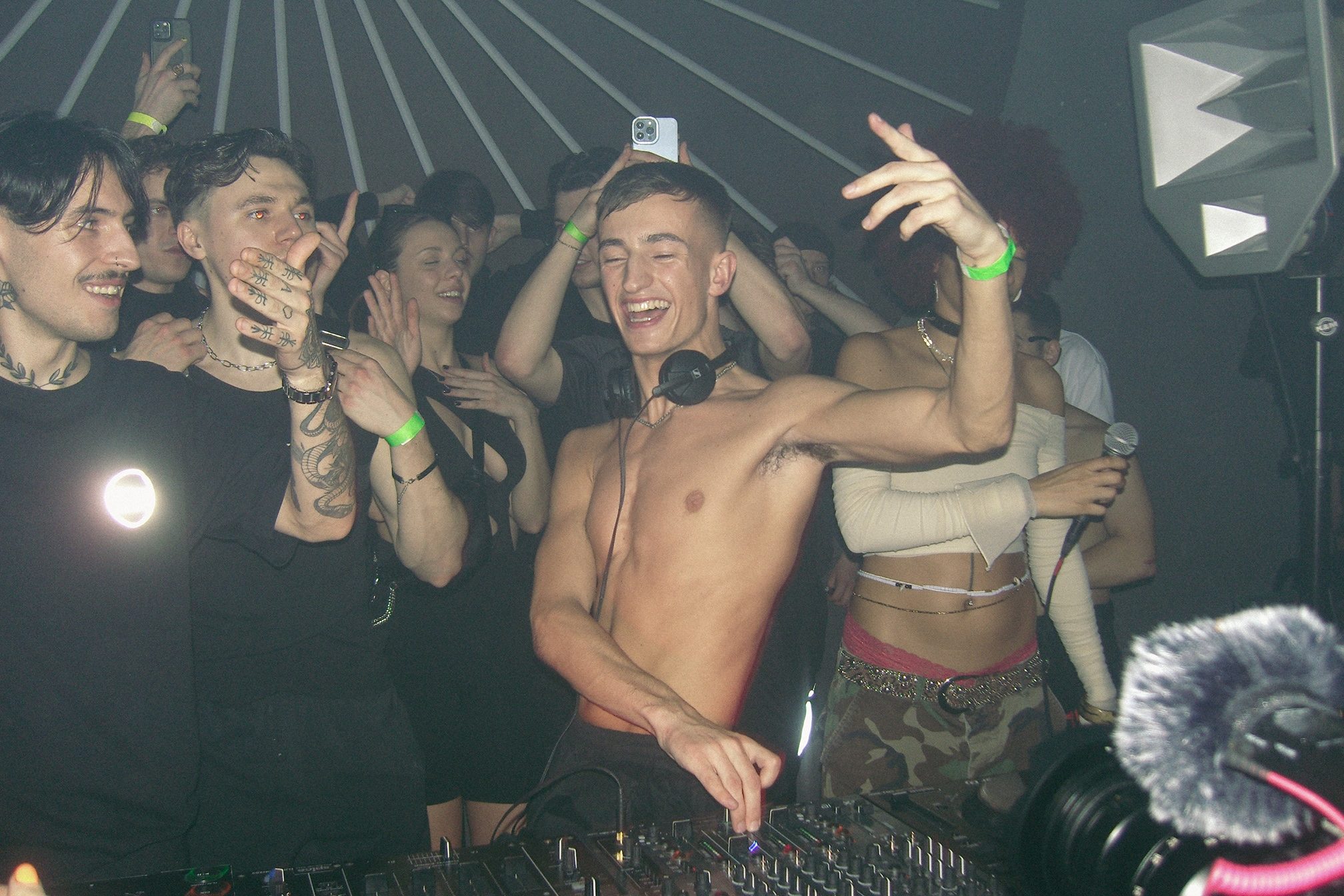
The simultaneous success of Teletech and the artists it nourishes is evidently built on a grounding of trust. Dubbed a “synergy” of “two things pulling in the same direction” by Anton, he believes momentum should not exist just for the levelling-up of Teletech parties, but for the artists that play them as well. “When they want to take the next step up and put a bit of a focus on themselves, because that trust is already there they’re coming to us like: ‘I’ve got this idea, I wanna do a record label party for my own label, I wanna do a curated night looking at people from my hometown that are coming through at the minute’ – and we’ll be more than happy to facilitate that. So with KI/KI, we did that, for VTSS’ For Your Entertainment we did the tour, Charlie Sparks’ night, Trym’s all night long in Glasgow, SPFDJ at FOLD… the list goes on. We’ve got something where we can give people that whole thing from emerging DJ to headliner and that’s where we pride ourselves.”
Teletech evidently cares a lot about its artists, but considering it is a predominantly techno-led event, then, how does it consider the roots of techno in Black culture when booking artists? The same names crop up on many of their line-ups, and there’s been a lack of diversity on some bills and among their agency roster, opening a wider discussion on the hard techno scene and its platforming of Black artists.
“Although techno is rooted in Black history, the hard techno scene isn’t full of Black artists being platformed as headliners currently. This is something we recognise and we’re actively using our platform to help change. We’re working with emerging people of colour to help bridge that gap and make the next set of headliners a more balanced and representative demographic true to the roots of the genre,” says Anton, exampling names including Theo Nasa, Xiorro, Lucia Lu and TAAHLIAH. “As a Black person in music this is something I feel strongly about and it’s important for me to be part of this change.
“Even before Teletech and XXL, inclusivity of marginalised groups was one of our main focuses and something we were both doing already.”
Read this next: Why we started the Black Artist Database
“With our line-ups, there’s never an all-male line-up, or all straight line-up,” adds Tom.
“That’s something we’d notice straight away because to us it would look out of place,” continues Anton. “In Hidden, our office is in the club, the diversity runs through from the very bottom to the top.”
“Although we’re both straight males, we’re continually in dialogue with everyone from every possible background and representation of what we can come up with in a line-up,” Tom notes. “I think it’s embedded within us to be mindful. We don’t sit down and say: ‘oh this needs to be like this’ or anything like that, it’s just something that’s natural, because it’s how we’ve worked for years now.”
Teletech has also responded to community dialogues beyond line-up representation. In February Ravers For Palestine’s called for a boycott of E1 “until further notice” after its founder was discovered to have travelled to Israel to serve for the IDF in Gaza. In a statement released at the time, Teletech announced “We’re aware of the situation”, and that 10 planned shows at the East London venue were in the process of being cancelled or rehoused. Planned events have since been rescheduled at North London venue Archives, while E1 announced a new CEO and plans to donate to humanitarian charities, as well as its opposition to “ongoing suffering of innocent people in Gaza.”
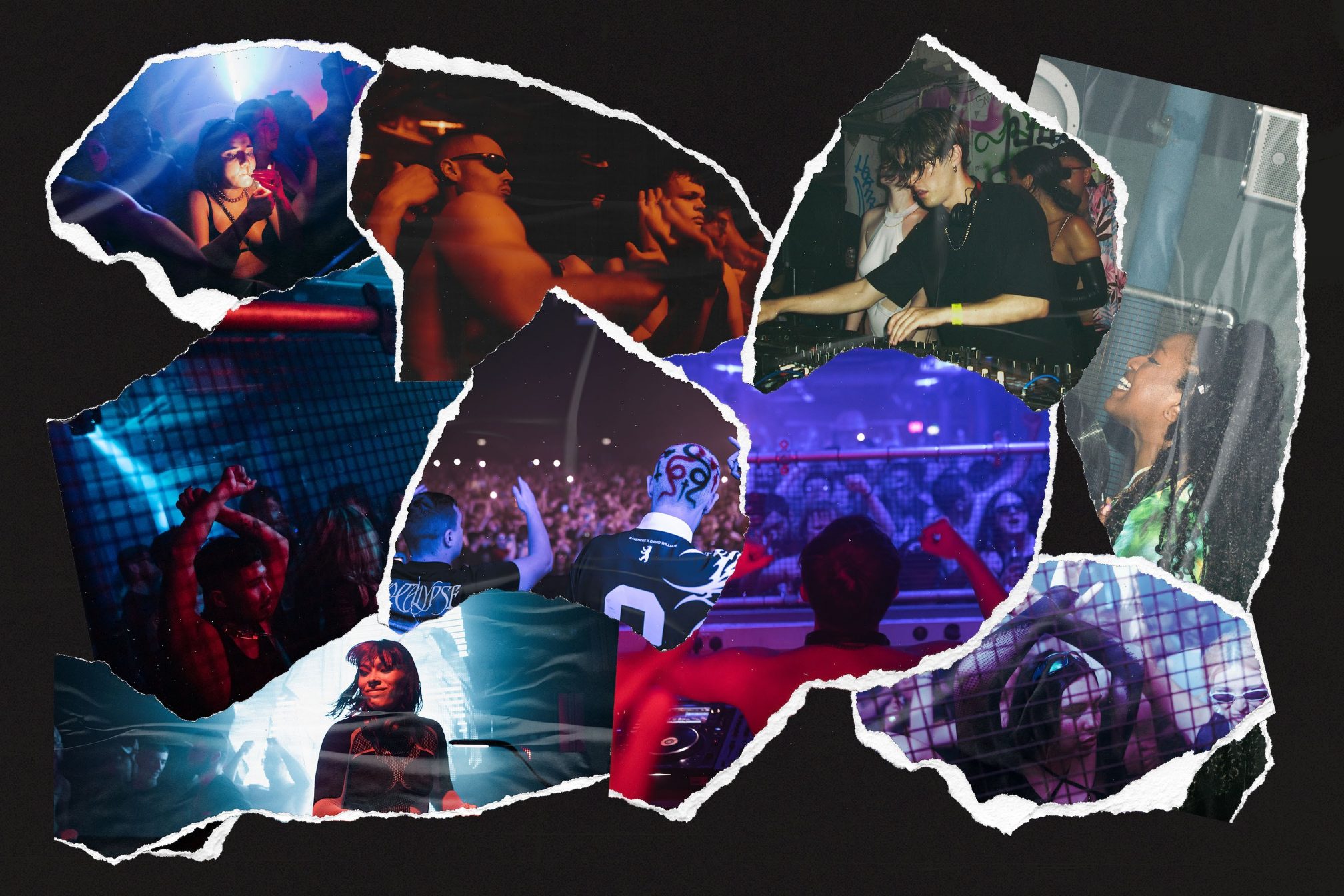
Teletech has now thrown parties on a variety of scales in the UK and abroad. Closer to home, recent events besides the infamous XXL at Warehouse Project and Teletech Festival at BEC Arena (where a stage was hosted by Boiler Room two years in a row, with these streams accumulating millions of views) include Glasgow’s New Year’s Day party with Anetha, I Hate Models and Neoma, and Teletech Sheffield and Swansea to name but a few. Looking forward, UK summertime plans include a collaboration with Creamfields Festival, hosting a stage across all three days, stage hosting at Parklife, and yet another Boiler Room collaboration in London. Internationally, 2023 saw an ADE party, several in Berlin, and a takeover of Karlsruhe’s Gotec club. Perhaps the biggest catch to date is the forthcoming XXL Malta event, taking over the country’s sandy shores for three days embodied by Teletech’s sound: hard techno, hardcore, trance, and more hefty beats. Elsewhere, hosting a stage at Tomorrowland, venturing into Australia, a tour of France, and the first 2024 Berlin date of inevitably many have been announced.
“We always try and involve local talent on shows in cities around the world,” Tom says, alluding to names such as VXYX in Glasgow’s NYD affair and Yasmin Gardezi in Belfast’s Shine collaboration. “It's super important to respect the ecosystem of where you're doing an event and try to platform local artists to our audience. Hopefully, this catches the eyes of other promoters and the artists get more bookings.”
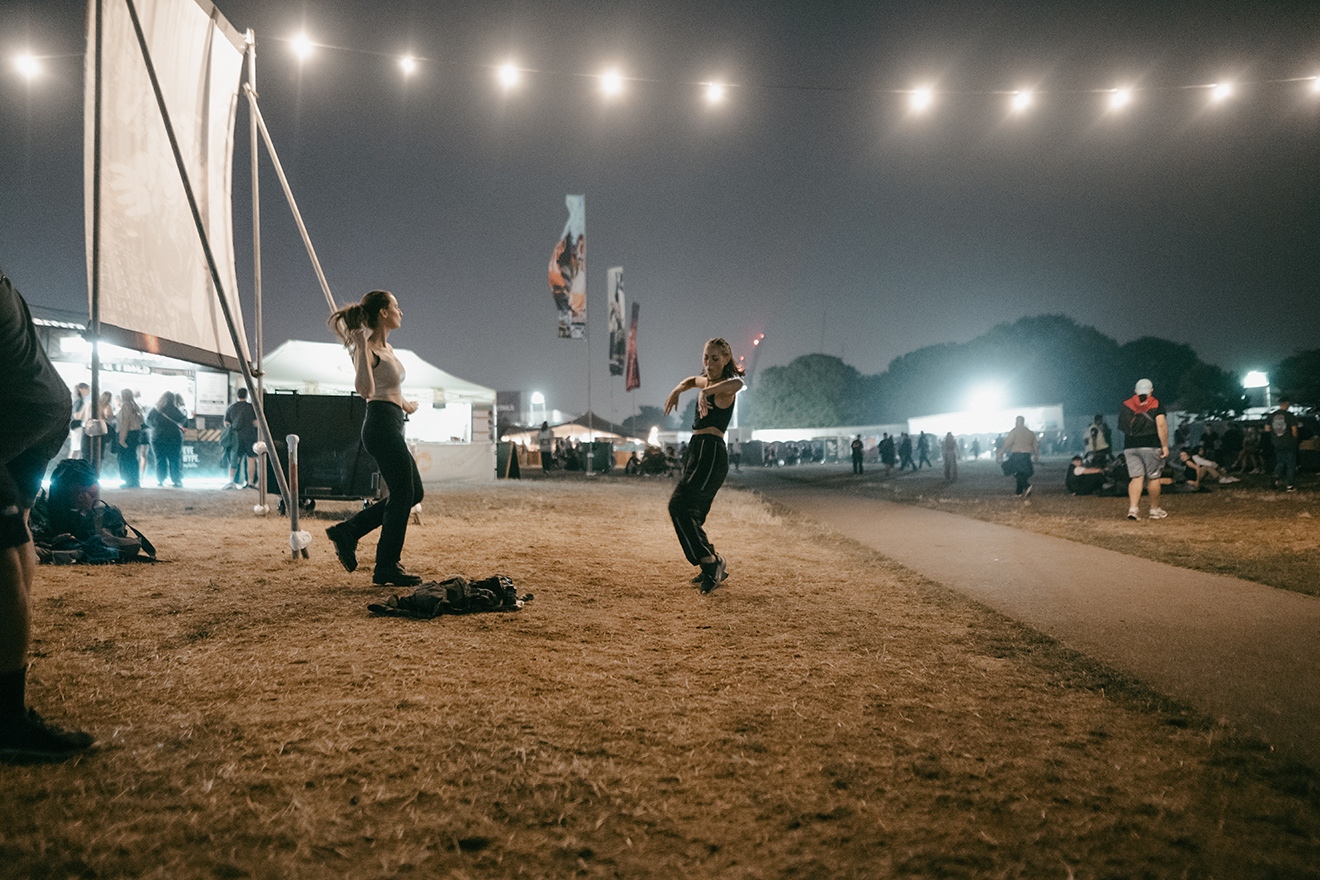
All parties have to start somewhere, and the humble beginnings of a student house party perhaps accounts for the vast success of Teletech. “People for a while were thinking that it’s a weird little thing that was working in Manchester, and then we’ll do it in London and it’s: ‘oh, maybe just a little thing that’s working there’; and we’ll do it in Glasgow and it’s: ‘maybe it’s just the UK’ and then we’ll do it in Berlin and then that’ll sell out…” Anton reflects. “But, eventually, by doing all these different things, people trust us.”
“They want authenticity,” says Tom. “If brands just throw out a techno line-up that they’ve never booked before and it’s maybe not bang on, the running order isn’t how it should be, then people kinda see through that and they don’t have that community aspect around it, whereas we do.”
read this next: Why we need our DIY spaces and co-operative venues more than ever
“Community is built around the consistency of the party as well, because we’ve been constantly doing it,” says Anton. “You can mention us doing the really big XXL stuff, but there’s loads of occasions we’ve done a one room show at Hidden with, like, 300 people.” The number of parties Teletech have thrown at Hidden in the last two years sits comfortably in the double figures, with similar-sized parties thrown across the UK in clubs including Liverpool’s 24 Kitchen Street, London’s Venue MOT, and Leeds’ Wire.
“You don’t build a community around 10,000 cap events, you know?” Tom nods to Anton.
“Not at all,” he responds. “They’re like a celebration, a focal point of all the work that comes in. The community comes from the smaller parties we do.”
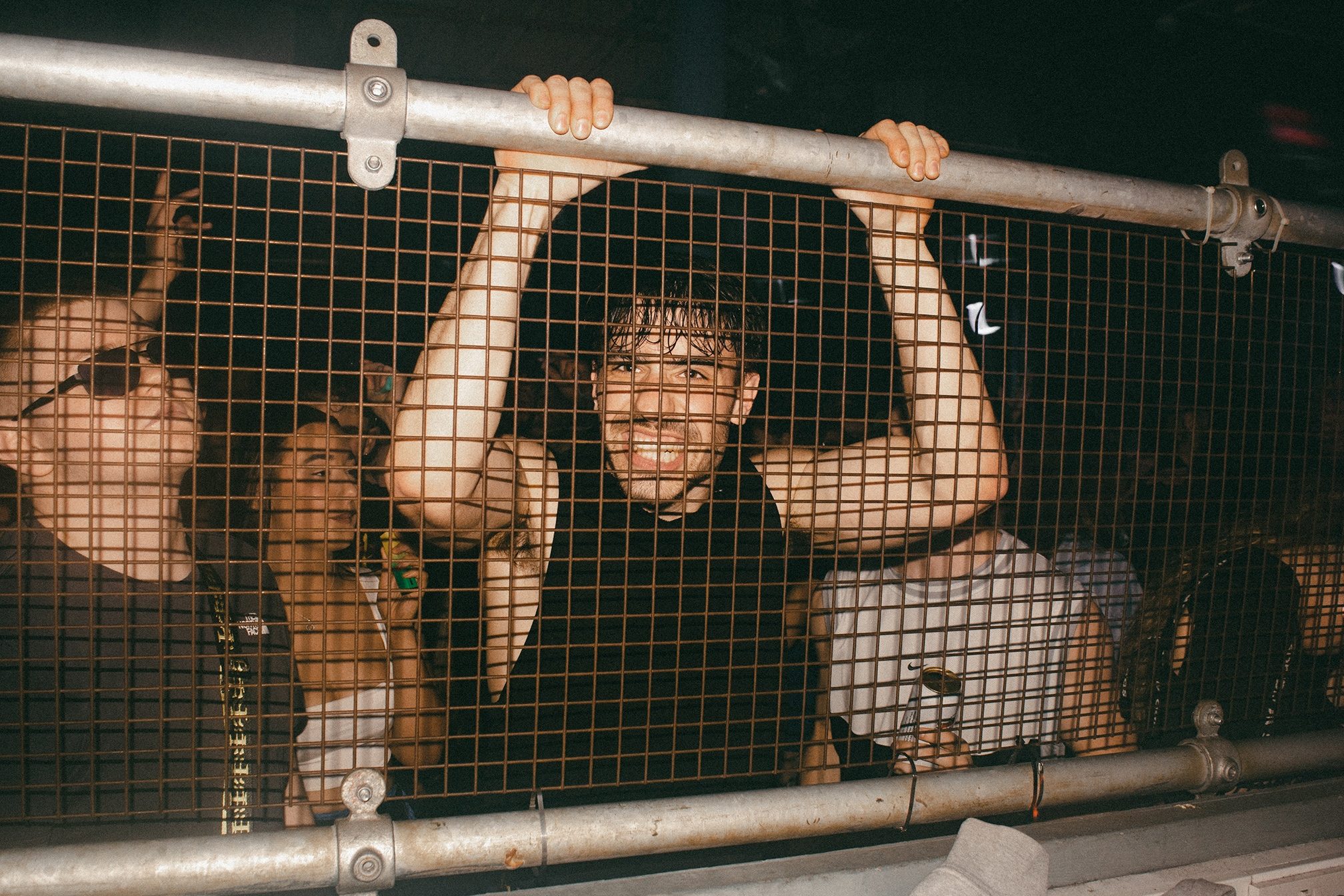
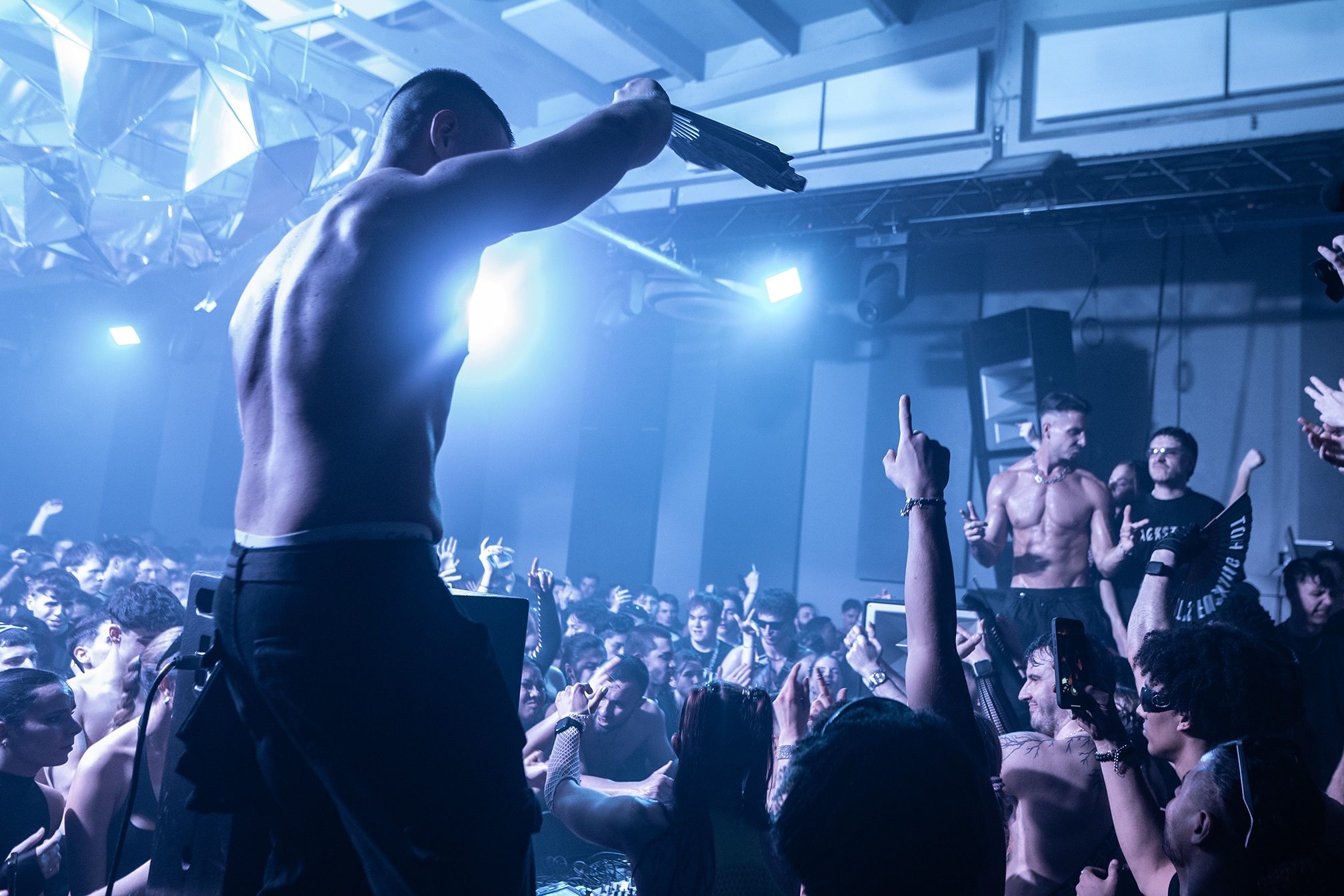
Wherever Teletech takes its parties, its obsessive fanbase follows — often identified by wearing the trademark merchandise (of which a remarkably varied expanded range has recently been launched) or even inked with tattoos. “It’s actually really nice and refreshing in this day and age to have this community that is following something that they love,” Tom says. “Everyone knows each other at the events. There have been so many friendships that have come from them. We get messages from people like: ‘I met my girlfriend at your event’.”
“A lot of people come not really knowing what to expect and leave with a really good feeling inside of: ‘That event was good, everyone was really nice’, and that’s what brings people back time and time again,” adds Anton, saying they feel the same sense of rapport when scaling from 300 to 10,000 capacity shows.
The most successful mechanism for helping to spread the word about club nights in modern day society is, for better or worse, social media. Operating as a driver for spotlighting someone’s potential new obsession, Anton is keen to acknowledge its impact, particularly of late. “If you want to experience something without even leaving your bedroom, social media is a great way to do it. That was a very real scenario during the pandemic. People were having to explore and see things, especially around Europe and the harder techno parties at the time, across the UK when it was completely closed; people were looking at parties that were still going on across the world. It’s given people a wider palette of what they’re looking for. I do think we’ve benefitted from that for sure, but it’s been beneficial for all types of music from that period.”
Read this next: Harder, better, faster, stronger: Has dance music got harder and faster?
With social media and a cult following can come challenges. At the beginning of 2023, Chippy Nonstop was booed by a portion of the crowd who felt the set didn’t meet the usual standards of the party, with a punter sharing a video of the incident on social media. This resulted in a wave of backlash on Twitter and Teletech had to step in to attempt to curb the harassment. How, I ask, do you deal with a situation like this?
“We want people to feel like they’ve been heard, actually trying to make sure you understand different people’s perspectives and also a common sense approach,” Anton says. Having spoken to the people involved directly - including the punter who shared the video - the situation was resolved on all sides swiftly. “We wanted to stamp that out straight away because it’s not what we’re about. It’s not happened before, it’s not happened since, but I feel like we made enough of a stand about it that if anyone is that way inclined then they’re not welcome. This is a party where people come to enjoy themselves - that includes the DJs - and on a basic level, no one deserves to be booed.”
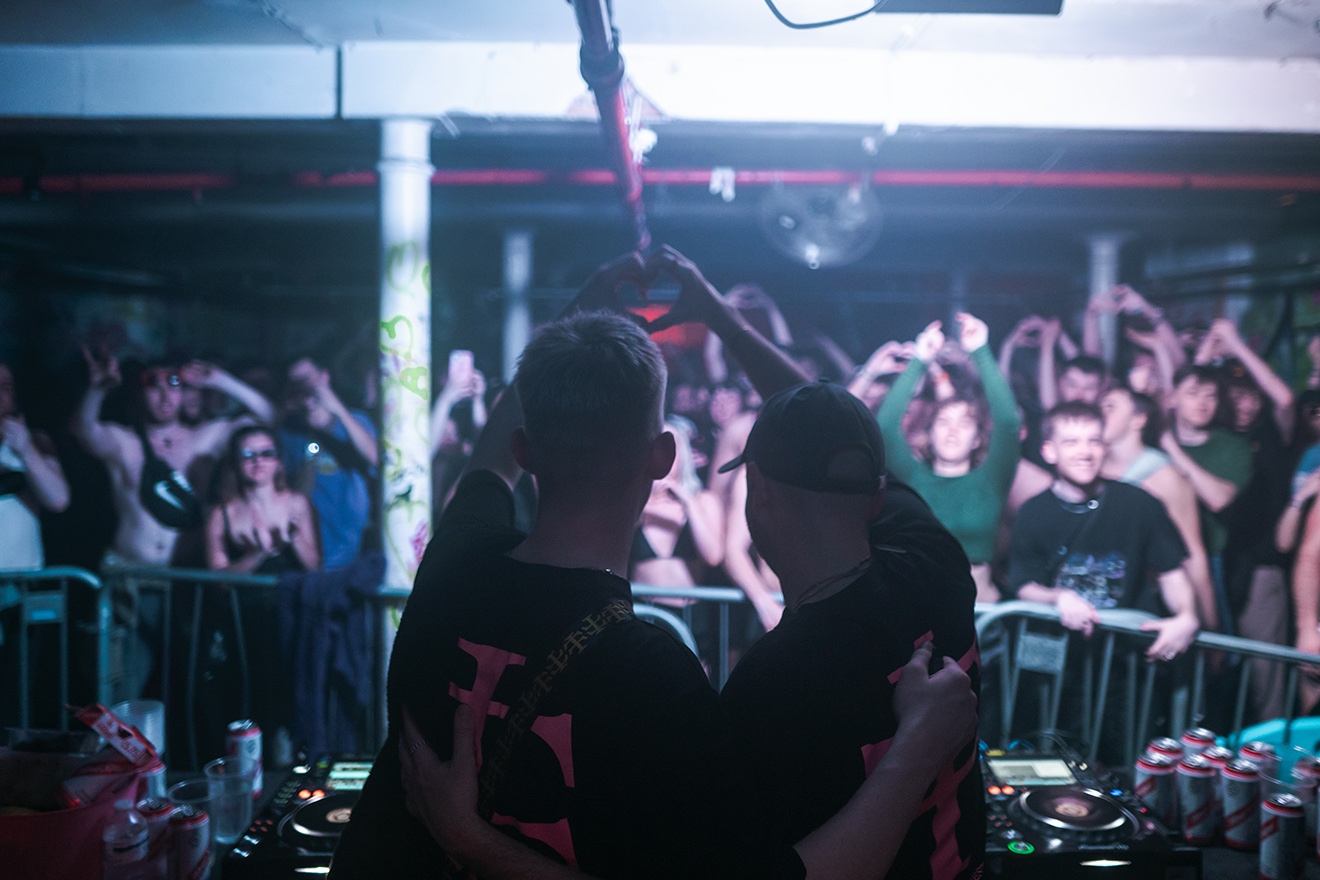
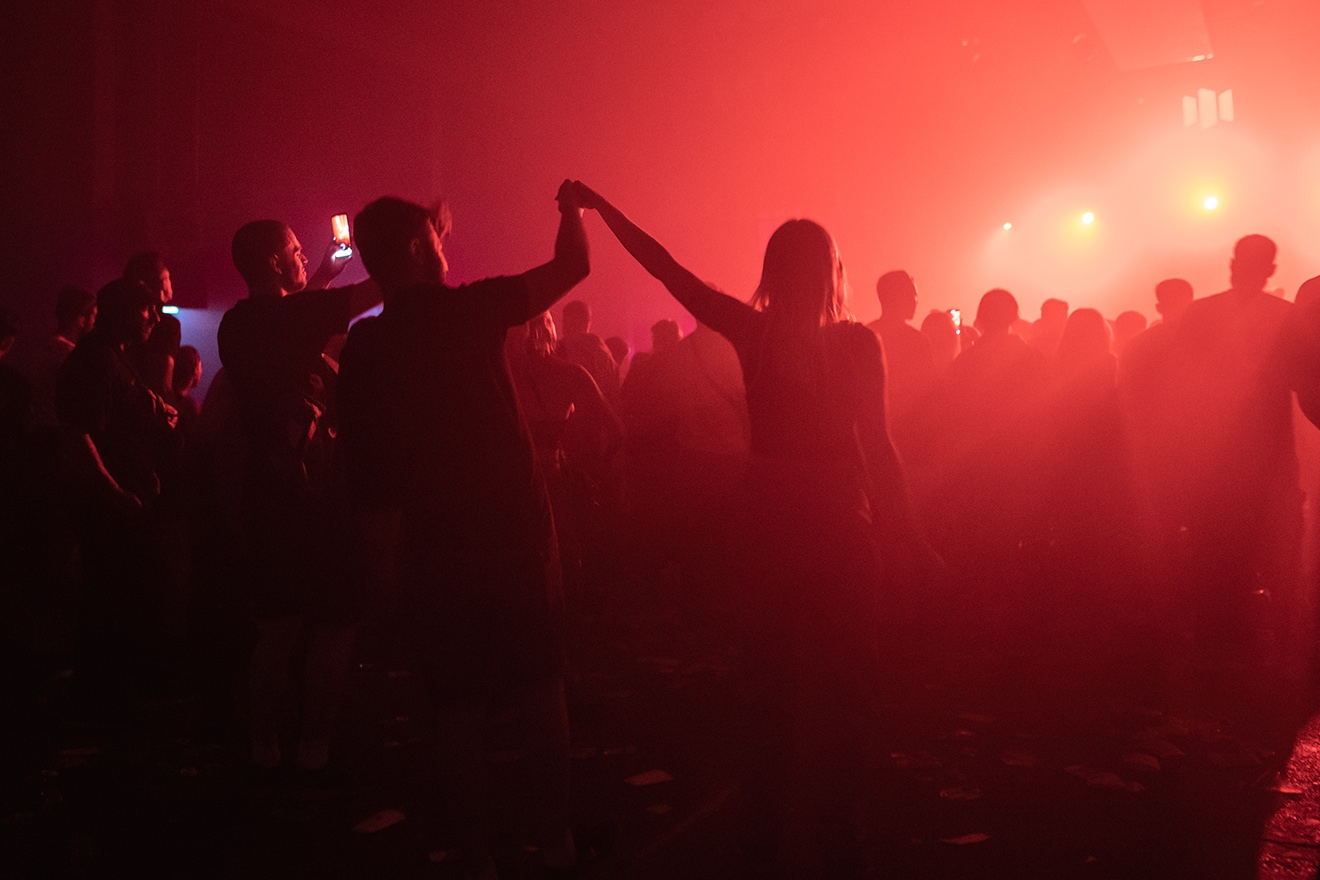
As a party increases in size, the likely chance of hurdles inevitably rises in parallel. Both Tom and Anton laugh that they emerge “every single day”.
“Sometimes when we put things out there and it’s a still image with set times we might get absolutely slaughtered about clashes, and it’s on a three room event,” Anton says. “If you were to put all of the strongest people in the same room at the same time, the entire capacity of that event is going to wanna be in that same room at the same time which is obviously quite dangerous. It’s things like that we have to manage and deal with all the time and be mindful.
“We really think about the customer experience, which for us is the paramount thing: from how they’re greeted on the door, to how they make their way around the venue, to how easy toilet access is. How easy is it to get to the bar? Can you still get to the front? Can you do this or that? All of those things are taken into account on a per event basis.
“You’re only as good as your last party and we never really rest on what’s already happened – we look to what we can improve and do better to try and make sure the future of what we are doing is growing in a positive way,” he concludes, with Azyr echoing this when we speak separately. “We never sit here patting ourselves on the back; if we did have that attitude, we wouldn’t last. Me and Tom see each other as putting on events that we would buy tickets to, booking stuff that we would wanna go to and the fact that other people are enjoying it, for us, is the best thing out of it.”
Teletech’s runaway popularity is undeniable, backgrounded against a concurrent obsession with hard and fast dance music, which marks another footnote in the illustrious history of techno. Whether new trends emerge or old cycles come back around as the year develops, one thing is certain: many a keen eye will follow Teletech’s next move within this ever-evolving club culture.
Niamh Ingram is Mixmag's Weekend Editor, follow her on Twitter


